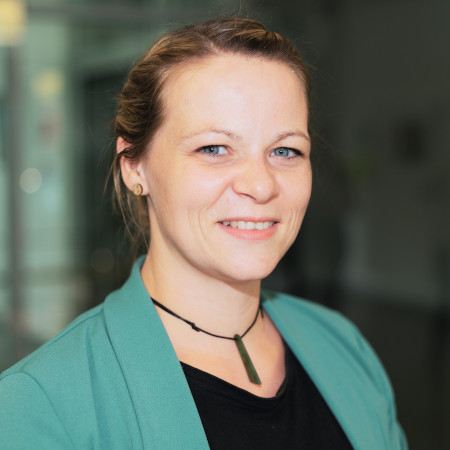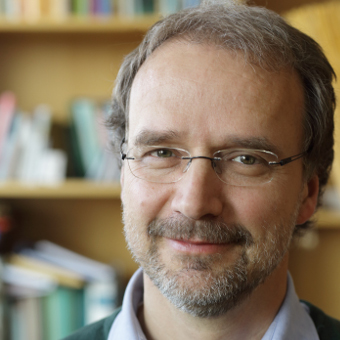“We use residues to establish sustainability”
Ronja BreitkopfProfession: PhD in microbiology and biotechnology
Position: Research assistant in the biomaterials research area at the industrial research organisation INNOVENT e.V. in Jena

Profession: PhD in microbiology and biotechnology
Position: Research assistant in the biomaterials research area at the industrial research organisation INNOVENT e.V. in Jena

The ‘Biomaterials’ research group led by Ronja Breitkopf at the industrial research organisation INNOVENT not only develops its own sustainable products and processes for the bioeconomy, but also supports research partners to advance innovations.
As an industry-oriented research institution, Jena-based INNOVENT has been working closely with companies for many years and supports them with specialist and technical expertise from product development to market launch. One focus is research into innovative and sustainable products and processes for the bioeconomy. Expanding the range of bio-based materials and making them usable is the focus of Ronja Breitkopf's ‘Biomaterials’ research group. The utilisation of residual materials plays an important role here with the aim of establishing sustainable applications and processes. The institute is a founding member of the German Industrial Research Association Konrad Zuse.
What are INNOVENT's core competences in bioeconomic research?
For more than two years, INNOVENT, and the biomaterials division in particular, has been focussing increasingly on the bioeconomy. We are very broadly positioned here and are increasingly expanding this expertise; from researching the potential of microalgae, developing bio-based adhesives and utilising hydrogels to the molecular modification of yeasts and bacteria. Our aim is also to utilise waste streams effectively, establish sustainability and gradually replace petroleum-based material components.
Which biomaterials are the focus of your research?
We are currently working on bio-based adhesives - in particular hot-melt adhesives - the utilisation of microalgae for the cosmetics sector, for example, and the development of production strains for bacterial cellulose, as well as specific yeasts. In addition, we utilise our many years of experience in the development of hydrogels to develop these with the help of residual material streams, among other things, and thus establish a systematic conservation of resources.
What services does INNOVENT offer its research partners in the development of biomaterials?
We support our customers with feasibility studies and the preparation of research proposals, but also offer material development, material testing and comprehensive analytical services. As an industry-orientated research facility, we have a broad range of expertise and equipment and can proudly look back on 30 years of experience. Thanks to our newly established S2 laboratory, we are able not only to carry out genetic engineering work, but also to work with potentially pathogenic organisms. This work is important, especially with regard to biocompatibility (cytotoxicity – testing for cell damage) and biofunctionality (e.g. antimicrobial properties).
With bacterial cellulose, a new field of research has recently been added.
What exactly are INNOVENT's research activities in this field? What advantages do you see for the use of bacterial cellulose in industry?
Compared to commercial cellulose, bacterial cellulose is more sustainable, takes up less space in production and is also significantly purer. Bacteria produce pure cellulose without the hemicellulose or lignin contained in plants. We want to develop a bacterial strain that is not only more productive, but also more robust than the current wild-type strains. In addition, it should be able to utilise residual material streams so that the generation of cellulose can take place in a water- and nutrient-saving manner. We also want to investigate various potential applications for cellulose.
INNOVENT is a founding member of the German Industrial Research Association Konrad Zuse, which focusses on practice-oriented research.
How does INNOVENT fulfil the requirement for practice-oriented research, especially in the field of bioeconomic research, and what is the aim?
We are an industry-oriented research organisation with a focus on practical relevance and application orientation. Our research and development projects are usually based on the needs of our partners from industry, specifically SMEs, which we aim to bring to application maturity in the various project forms. To this end, we are in close contact with industry in order to identify potential points of intersection and issues – be it the utilisation of residual material streams, saving or avoiding the use of crude oil, such as in adhesives or microplastics in cosmetics. The aim is always to advance our partners and lay the groundwork for innovation. This means accelerating the introduction of potential products and processes in order to create an environment worth living in for future generations.
Interview: Beatrix Boldt


